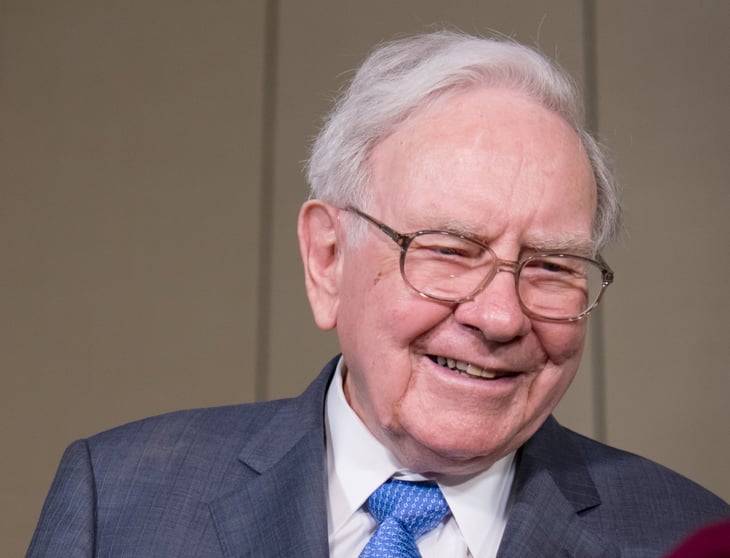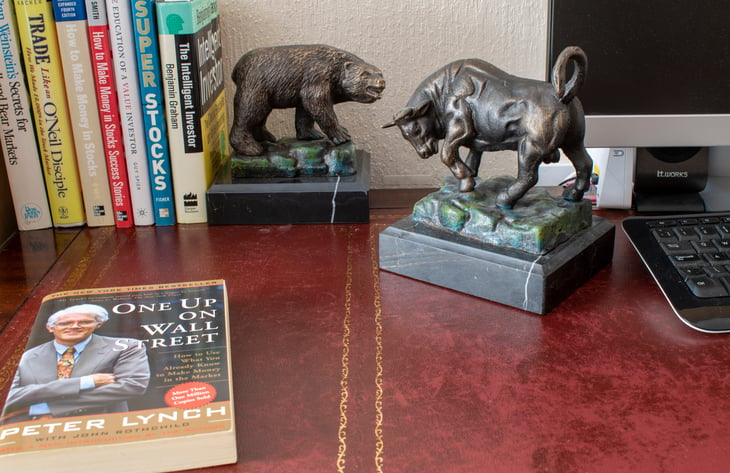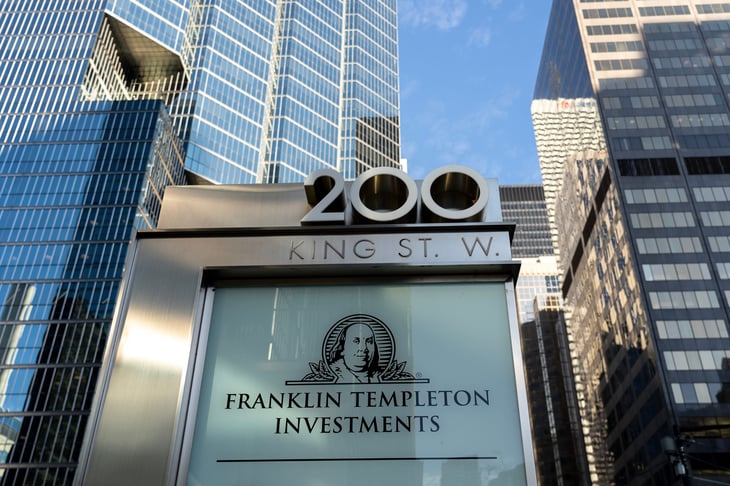

Following are some of the best nuggets of investing wisdom from history’s greatest investors. Their advice is helpful at any time in the market cycle, but especially so when the bear is growling and your net worth is — at least temporarily — sinking.
Warren Buffett

No one is quoted about investing as frequently as Warren Buffett, the chairman and CEO of Berkshire Hathaway. The legendary Oracle of Omaha is justly famous for a seemingly endless stream of pithy observations about the vagaries of investing.
Buffett has said that when he buys a stock, his preferred holding period is “forever.” He believes dipping into and out of the market on a regular basis is more likely to result in heartache than riches. Perhaps the quote that best illustrates Buffett’s philosophy is:
“If you aren’t willing to own a stock for 10 years, don’t even think about owning it for 10 minutes.”
Buffett has said you should view buying stocks as investing in a business, not placing a bet on a ticker symbol that goes up and down in value. When stocks decline, it’s something to celebrate, not mourn. As he also has said:
“Whether we’re talking about socks or stocks, I like buying quality merchandise when it is marked down.”
For more, read “Warren Buffett’s 2-Step Plan for Surviving a Bear Market.”
Charlie Munger

In some ways, Charlie Munger, Berkshire Hathaway’s vice chairman, serves as the alter ego of his partner, Buffett. While Buffett is an avuncular Democrat known for his folksy wisdom, Munger is a far more caustic Republican who rarely pulls punches or suffers fools gladly.
The two long-time friends share a fierce intelligence, however. Microsoft founder Bill Gates has said of Munger: “He is truly the broadest thinker I have ever encountered.”
Like Buffett, Munger has an incredible track record as an investor. Munger’s best advice applies to both investing and life:
“Spend each day trying to be a little wiser than you were when you woke up. Discharge your duties faithfully and well … Slug it out one inch at a time, day-by-day, and at the end of the day — if you live long enough — like most people, you will get out of life what you deserve.”
John Bogle

In 1976, the late investor, business magnate and philanthropist John “Jack” Bogle launched the world’s first index fund available to retail investors. That single action might have done as much to help individual Americans achieve prosperity as any policy dreamed up by a U.S. president or member of Congress.
Bogle — the founder of Vanguard Group, one of the world’s largest investment companies — believed that investing in low-cost index funds was the key to unlocking riches.
Time proved him right. Today, tens of millions of Americans use index funds as a core part of their investing strategy.
Bogle argued forcefully against what he saw as the futility of trying to both pick individual stocks and time the market. He recommended buying index funds and holding them through thick and thin, even when markets were in steep decline.
Buying an index fund lets you share in the gains of the entire market, rather than a handful of companies. It’s far easier than trying to identify companies that might give you outsized returns.
“Don’t look for the needle in the haystack. Just buy the haystack. “
For more on Bogle, check out “Investing Pioneer Showed Us How Fees Rob Our Retirement Funds.”
Peter Lynch

In the 1980s and early 1990s, Peter Lynch — even more than Buffett — was the rock star of the investing world.
Lynch ran Fidelity’s Magellan Fund from 1977 to 1990. During that time, he averaged an astounding average annual return of 29.2%. A $50,000 investment compounding at that rate over 13 years would grow to around $1.4 million.
Lynch is a major proponent of the notion that anyone with a decent amount of intellect and a lot of natural curiosity can become a great investor. However, if you are truly going to succeed, you must have the intestinal fortitude to handle the gyrations of the stock market.
In a 1994 speech at the National Press Club, Lynch said:
“The key organ in your body in the stock market is your stomach. It’s not the brain. If you can add eight and eight and get reasonably close to 16, that’s the only level of math you need to know. All you have to know is it’s always going to be scary, there’s going to be always something to worry about, and you just have to forget about all that.”
John Templeton

Sir John Marks Templeton was a British investor, banker and fund manager who actually was born in Winchester, Tennessee. Determined to make something of his life from an early age, Templeton was a hard worker who was constantly learning and pushing himself into new ventures.
Eventually, he became an expert investor, described by Money magazine as “arguably the greatest global stock picker of the century.”
Templeton’s most famous quote continues to be repeated by market watchers to this day:
“The four most expensive words in the English language are ‘This time it’s different.'”
Templeton’s words are a reminder that even the biggest bull market will eventually go bust. As a famous saying goes, trees never grow to the sky forever. Eventually, things revert back to the mean. For example:
- In the 1970s, investors believed if they invested in America’s biggest, most storied companies — the so-called “Nifty Fifty” — investment success was a cinch.
- In the 1980s, the Japanese stock market was the place to be, as it looked like the Pacific nation was marching toward permanent dominance of the global economy.
- In the 1990s, tech stocks rocketed higher, convincing millions of investors to bet large amounts of money on the wave of the future.
In all three cases, the bottom eventually fell out.
Whether your favorite corner of the stock market is soaring or plunging, the most important thing to remember is that it is unlikely to stay that way forever.
Philip Carret

Philip Carret is not a household name, but those in the know consider him to have been one of the greatest investors of all time. Buffett viewed Carret as a mentor and once referred to him as “the hero of investing.”
In 1995, Carret — then 98 years old — appeared on the iconic PBS show “Wall Street Week.” Louis Rukeyser, the program’s host, asked Carret to describe the single most important thing the investor had learned from during his many decades of investing.
Carret instantly shot back an answer: “Patience.”
He then went on to describe his philosophy of buying stocks “for the long pull,” living through the ups and downs of the market and waiting for his investments to deliver great returns as the years rolled on.
Rukeyser asked Carret what he did when the market soared beyond fundamentals and began to look too risky and “frothy.” Carret replied with a chuckle: “I really don’t do anything.” Instead, he simply stayed the course.
In summing up his philosophy, Carret said:
“This is a great country, despite having too much government. And I think in the long run, the market will recover and people who buy the right stocks and sit on them are going to do very well.”





Add a Comment
Our Policy: We welcome relevant and respectful comments in order to foster healthy and informative discussions. All other comments may be removed. Comments with links are automatically held for moderation.